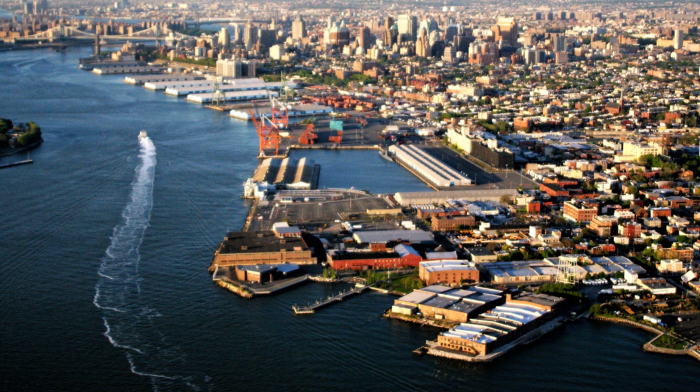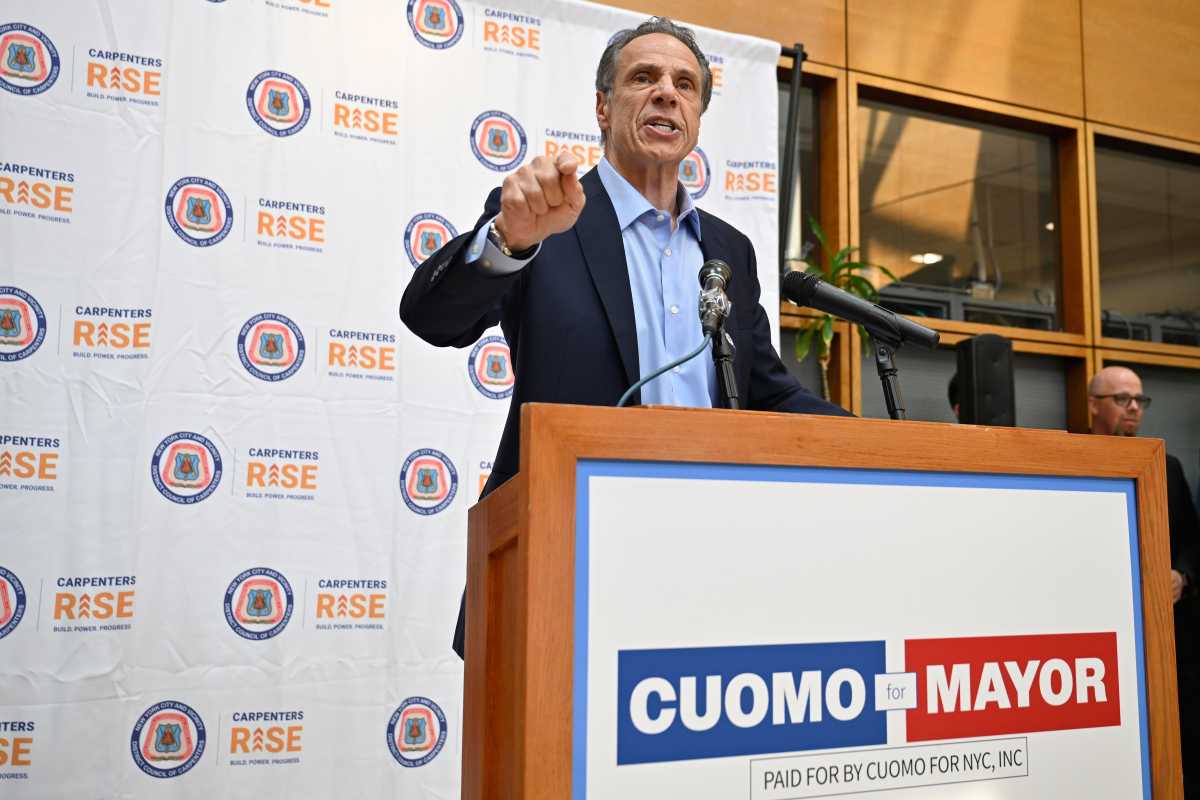How good is economics writer Amity Shlaes? Consider this: The Brooklyn Heights resident once made the best-seller list with a book about the U.S. tax code (the tax code!).
She’s also known for having covered the collapse of East Germany, serving with distinction on the editorial board of a little newspaper called the Wall Street Journal, writing columns for the Financial Times and now BloomÂberg (they appear locally in the New York Sun), and working as a visiting senior fellow at the Council on Foreign Relations.
Shlaes’s new book, “The Forgotten Man,” is about the Great Depression — and it takes on every conservative’s favorite punching bag, Franklin Delano Roosevelt, as well as his Republican predecessor Herbert HoovÂer. Like many on the right, Shlaes is convinced that the New Deal did more harm than good — but she’s got a better argument than “FDR was a soft-hearted Commie.”
This week, she checked in with Harry Cheadle to talk about kosher chicken butchers, being a Whig (not an American Whig, though — for heaven’s sake!), and the New Deal.
Q: Why did you think it was important to revisit the Depression?
A: Should a downturn come again, you want to know what went wrong. The government interventions were wrong. Hoover and Roosevelt both did some pretty bad things and they hurt the economy. This is a revision, but it’s not a Roosevelt-hating book or a Hoover-hating book. It’s not a Democratic or a Republican book. I’m not political right now.
Q: Well, a lot of people call you a “conservative columnist.” Do you consider yourself a conservative?
A: What I am is a classical liberal — pre-New Deal. A 19th-century liberal, a Whig — a British Whig, not an American Whig. Before the New Deal, liberals believed in the individual. Conservative is a weird word. I think free-marketeer is the word for what I am. Conservatives believe that FDR was a devil or that the Securities Exchange Commission was bad, and I don’t believe that.
Q: OK, you’re a Whig — a British Whig, that is. So who do you like for president?
A: I don’t even have a view. It’s a history book.
Q: Fair enough, so let’s get back to the dusty aisles of history. In the book, there’s an anecdote that deals with the Schechter brothers, who were kosher chicken butchers. What’s the deal with them?
A: Well, Brooklyn broke the New Deal. The centerpiece of the New Deal was the National Reform Administration. The thesis underlying it was that Washington should micromanage the economy down to the prices that merchants charge. The Schechter brothers, who were in the poultry business on Ralph Avenue, among other places, were prosecuted by the NRA. They had a lawyer from Brooklyn Law School — they were real Brooklyn people with a real Brooklyn lawyer. Their English was bad; the federal prosecutors, fancy Washington people for the most part, mocked them. It was class and ethnic bigotry. The federal prosecutors accused them of all sorts of things. The NRA went against the natural law of the marketplace — it said there was no consumer choice, and it said that prices couldn’t be too low, whatever that meant. It was a silly law. They were convicted in the lower court and went to the Supreme Court. The Supreme Court sided with them and said the NRA was unconstitutional, and the NRA was killed. They knocked down the centerpiece of the New Deal. It changed politics and the way businesses are treated. That’s one reason our businesses are less regulated today.
Q: Besides not regulating business as much, what lessons should today’s polÂiticians learn from what you call the mistakes of the New Deal?
A: Paying off groups works politically, but it doesn’t necessarily work economically. Social Security begat the Great Society which begat Medicare, Part B, which is a serious obstacle to our future growth. Our grandparents are holding their grandchildren hostage by believing that [social programs] are the only way. The false nostalgia for the New Deal is hurting our entitlements. The strong part of our history is through markets; the bad parts of our history came through government intervention. This isn’t a Republican view; it’s right down the middle.
Q: Government intervention is okay in cases like Katrina, right?
A: The government rescues you in Katrina-like situations. But another part of your history is the individual doing things for him or herself. A market crash can feel like Katrina, but often the economy can right itself. The private sector is a better job creator than the public sector. The Internet was not created by executive order — it was private industry.
Q: But didn’t Al Gore invent the Internet?
A: Let’s leave Al Gore out of this.
Q: Gladly. So, has your stance towards the New Deal made the book controversial?
A: I’m sure it’s going to be a controversial book, but it’s not a hating book. The late famous historian Schlesinger said that history is a controversy, a discussion, which is why we love it. [The book] is just another part of that discussion.


























